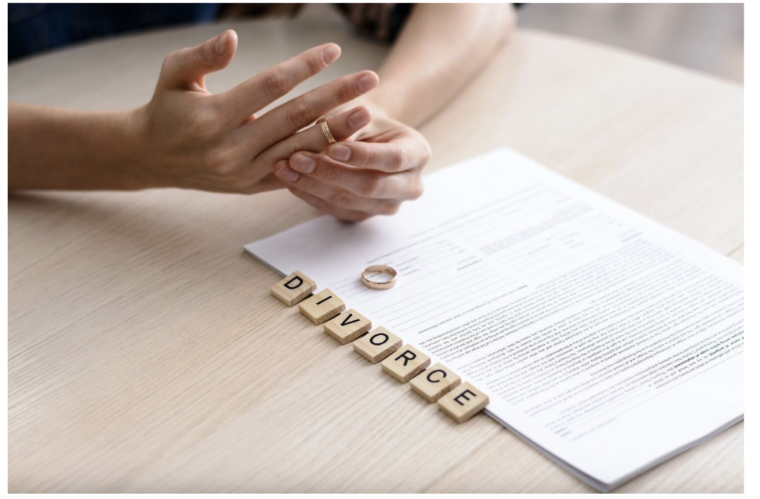Is It Better to File Divorce First or Last: Pros and Cons

Does it matter which spouse files for divorce first? What advantages will you get in this case, or, on the contrary, what difficulties will you have to face? We propose to consider all these questions in this article.
Advantages of filing divorce papers first
If you file for divorce first, chances are you won’t be responsible for debts that were accumulated during the marriage without your knowledge. In addition, it will give you more time to prepare emotionally and financially before the process begins.
Those who file first for divorce will usually have an advantage in determining custody and property division in court. After all, this will indicate readiness to protect one’s rights and interests in court. It also provides an opportunity to present the case before the other party wishes to contest any claims made by the applicant. In addition, there are other advantages of submitting documents first:
- You can control the terms and conditions of the divorce
If you feel you need additional safeguards during the process, it may be a good idea to file for divorce first. This will give you the opportunity to control to a certain extent when and how your problematic issues will be resolved.
In many cases, filing for divorce first for the other party allows more time for financial and emotional preparation before court hearings. . It will also provide an opportunity to find a qualified lawyer and receive professional advice that will help to successfully complete this process. The priority of filing for divorce in Michigan online allows more control over the course of the case to take into account one’s own interests.
- You can set the tone of negotiations with your partner
By filing first, you can be sure that the case will be heard by the judge in a timely manner and that any decisions made will be legally enforced. You will have more control over the proceedings by providing evidence and arguments to support your position.
Who should file for divorce first is an individual decision based on many factors. However, prioritizing this matter will ensure that your rights and interests are protected throughout the process. This can be beneficial both financially and emotionally.
Thus, by filing first, you can be sure that your interests will be fairly represented in negotiations and court proceedings. The first filing gives you the opportunity to choose which court will hear your case.
You’ll also be able to plan ahead and take the first steps toward financial independence. Because this will give you more time to save money, open new accounts, and prepare for life after divorce. You will also have an advantage in negotiations, as you will demonstrate that you are serious about resolving issues quickly and efficiently.
| Factor | Filing First | Filing Last |
|---|---|---|
| Control over the process | The first filer sets the tone for the divorce proceedings | The second filer may have less control over the proceedings |
| Time to prepare | The first filer has more time to prepare for the divorce | The second filer may have less time to prepare |
| Emotional impact | Filing first may make the person feel empowered and in control | Filing last may lead to feelings of being on the defensive |
| Financial implications | The first filer may be able to get a better financial settlement | The second filer may have to accept the terms set by the first filer |
| Court proceedings and costs | The first filer may have to pay court fees and costs | The second filer may have to pay higher court fees and costs |
| Impact on children and family | Filing first may allow the person to set the tone for co-parenting | Filing last may lead to tension and conflict in co-parenting |
| Impact on divorce settlement | Filing first may allow the person to get a more favorable settlement | Filing last may lead to a less favorable settlement |
| Strategic advantage | Filing first may allow the person to gain a strategic advantage | Filing last may lead to the person being at a strategic disadvantage |
Disadvantages of filing for divorce first

Depending on the state, court fees and associated costs can be expensive. They are usually paid by the person who initiates the process. This means that if you file for divorce first, you will have to pay a large sum of money before an agreement is reached.
Filing for divorce first for your partner means that you will have to wait longer to receive your share of the property or alimony that is owed to you. This could put you in a difficult financial position until the case is settled. Therefore, it is important to carefully weigh all the pros and cons before deciding whether to file for divorce first or last.
There are other disadvantages:
- You will appear “guilty” in the eyes of the court
If you are concerned about being seen as the “faulty” party in court, then it may be wise to wait until your spouse files for divorce first. You can also consult a lawyer before making any decisions.
- If you are confident in your ability to prove that you are not at fault for the divorce, then you can try to file first. This option should always be carefully considered and discussed in advance with a qualified attorney. It is important to consider all possible options. Your spouse may use your statement against you in court proceedings
If a spouse had alimony at the time of the case and the other party has evidence that you filed for divorce first, this can be used to request a reduction or even termination of those payments.
Also, if there are child custody or visitation issues, filing for divorce first can also work against you in court. Your spouse may argue that by initiating the divorce process on your own rather than trying to reconcile, you did not put the children’s best interests first.
Filing for divorce first can be seen as an aggressive act that will damage your reputation and affect your chances of a positive settlement.
It can also create an adversarial tone during the proceedings, making it more difficult to reach a settlement and lead to more contentious and protracted litigation.
Therefore, it is important to consider all options before deciding who should file for divorce first, as this can have long-term consequences for both parties.
Advantages of filing for divorce last

This can help reduce the costs associated with litigation. You will also have time that you can use to negotiate a settlement or decide on a fair distribution of assets and liabilities. This will help reduce the animosity between the two parties and make it easier for them to reach a solution that suits everyone without going to court.
Filing for divorce as a last resort ensures that you have access to an attorney throughout the process. This is very important during a divorce to protect your rights. A legal advisor will provide guidance on important issues such as child custody, spousal support, property division, and other aspects related to divorce. Because both parties have access to legal counsel, they are more likely to reach an agreement that benefits all involved. Let’s consider other advantages:
- You can use this to your advantage
- If your partner files for divorce before you do, you will be able to pay close attention to all the documents and spot any errors or omissions in them. This can be used as leverage during negotiations or legal proceedings. Taking this approach will ensure that you can get a fair result and protect your rights throughout the process. You may be able to negotiate a better settlement with the other party
This means that you can take your time with gathering evidence and preparing the case. Use this time to do a good job on any financial or other documents that need to be filed to finalize the divorce.
If the other party does not know that you have filed for divorce, they may be surprised when they receive notice from the court. This will make the situation emotionally unstable – both sides will try to gain an advantage over the other.
Each party in a couple decides for itself whether to file for divorce first or last. If the partners are willing to negotiate, then this can give you an advantage in terms of obtaining a better settlement agreement.
When one party files first, it may be less inclined to make any compromises. By waiting until the last minute, each party has a better chance of getting a fair result regarding property division and child support. It will also help to avoid costly and protracted legal battles.
In general, it is generally better if both parties are willing and able to file at the same time, so that they can avoid initiating expensive legal proceedings. In some cases, one person may be in a better financial or emotional position to take on the burden of filing first. In such a situation, the other spouse can wait and see how events will develop before taking any steps on their own.
Disadvantages of filing divorce papers last
Second filing for divorce can cause additional stress if there is a long waiting period between when the documents were collected by the first party. During this period, the spouses will worry about the final settlement agreement. The longer this waiting period is, the more stressful it is for both parties, which can lead to further problems during negotiations.
Other disadvantages include:
- Less control over the terms and conditions of divorce
If the first party decides to challenge any aspect of your petition, it could potentially delay or even derail the entire proceeding. If your spouse chooses to file a counterclaim instead of working with yours, it will result in a lengthy trial and greater financial loss.
If there is a possibility of conflict between you and your spouse, or if there is a chance that they will file a counterclaim, then it is in your best interest to seek legal advice before deciding whether to file last.
- You will have less time to prepare for court proceedings and negotiations with your partner.
The main disadvantage of submitting documents last is the lack of time to prepare for court proceedings and negotiations with the other party. This can cause additional difficulties if issues such as child custody or property division need to be discussed during the process. If your spouse chooses to fight or delay negotiations, you may find yourself at a disadvantage due to limited preparation time.
The decision as to whether it is better to file for divorce first or last depends on the specific situation and the goals for obtaining a favorable result. Therefore, it is important to carefully weigh all options so that you can make an informed choice about how best to proceed with your divorce.
If you file for divorce first, you set the tone for the further development of the process and can control that all the documents are in order. Waiting for your spouse to file first can result in additional delays as both parties adjust their position and work out a settlement agreement.
Being the last to file for divorce also puts you at a disadvantage when it comes to dividing assets or making decisions about child custody or child support. Since the other party has already initiated the process, they will likely have more leverage in the negotiations than if you had applied first. You may find yourself at a disadvantage in terms of getting the desired outcome of the settlement if you delay filing for divorce for too long.
